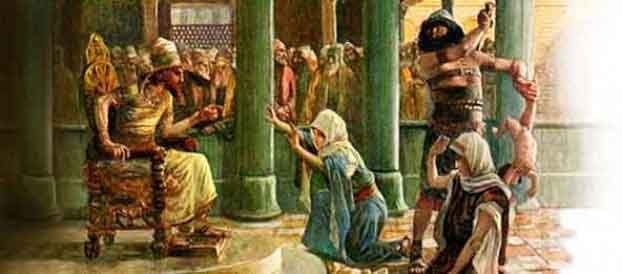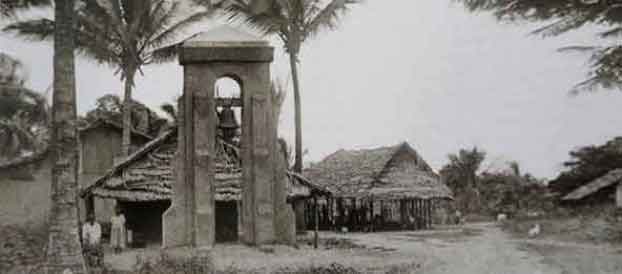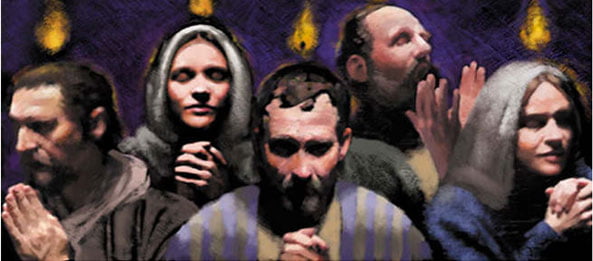Love Your Church
Some years ago I was walking through the Johannesburg city centre. Most of the buildings I walked past were very high. Suddenly I came across a space where there was no building. There was just a corrugated iron fence and I could hear pneumatic drills, big engines and lots of shouting on the other side. I looked inquisitively through a hole in the fence and was surprised to find myself gazing down into a massive hole. It took up the area of a whole building and was a few stories deep. My first thought was “Wow, why are they going so deep?” But it’s obvious; they were preparing the foundation for a building that was going to go very high. The higher you want to go, the deeper you must go. And as I looked into this enormous hole in the ground, it hit me: foundations are really important!
Did you know God is building a building? And did you know this building has a very special foundation? Yes, let’s read what Paul says:
‘Consequently, you are no longer foreigners and strangers, but fellow citizens with God’s people and also members of his household, built on the foundation of the apostles and prophets, with Christ Jesus himself as the chief cornerstone. In him the whole building is joined together and rises to become a holy temple in the Lord. And in him you too are being built together to become a dwelling in which God lives by his Spirit’ (Ephesians 2:19-22).
You and I are members of a massive building; the world wide church. Christ is the foundation; the apostles are only part of it because they testify to Christ. Paul says that in Christ the whole building is joined together, and rises to be a holy temple. Paul says elsewhere ‘No one can lay any foundation other than the one already laid, which is Jesus Christ’ (1 Corinthians 3:11).
This tells us something important about God’s household. Only Christians are in it. Only those who have Christ as their foundation are in it. Please don’t blame me for saying this; I’m just saying what the bible says. I know it’s not popular to exclude other religions now days, but Jesus was exclusive. He said “I am the way and the truth and the life. No one comes to the Father except through me” (John 14: 6). We either believe Jesus or we don’t.
Paul gives goes further with the theme in the fourth chapter of Ephesians saying ‘There is one body and one Spirit, just as you were called to one hope when you were called; one Lord, one faith, one baptism; one God and Father of all, who is over all and through all and in all (Eph 4:4-6).
There is one faith and one baptism; our faith is in Christ we are baptized in to Christ. When Paul says the Father is ‘over all and through all and in all’ he is talking about all Christians. This is an important point. All Christians have one faith and one baptism! (This is a good place to say ‘amen’ – or ‘I agree’ if you are modern).
People joining our church from another denomination sometimes asked me if they need to be baptized again. That’s crazy; we are not baptized into a church! We are baptized into Christ! Our one baptism into Christ is good for all churches. He’s the foundation for the whole church.
I love this portion of Ephesians because it emphasizes the unity of God’s church. No matter what Christian denomination you are in, you are part of God’s big household. And God has no favourites; Christ alone makes us who we are!
But Paul isn’t finished; in fact he has something big to say. He says ‘BUT to each one of us GRACE has been given as Christ apportioned it … Christ himself gave the apostles, the prophets, the evangelists, the pastors and teachers, to equip his people for works of service, so that the body of Christ may be built up until we all reach unity in the faith and in the knowledge of the Son of God and become mature, attaining to the whole measure of the fullness of Christ’ (Eph 4:7-13).
The word ‘but’ at the beginning of this portion of scripture indicates that Paul is changing direction. He wants to point out that in the unity of our faith and the oneness of the church, there is something that’s not the same for all Christians, and not the same for all churches. He says God gives each person, and more specifically here; each leader, a different grace. He mentions five different leadership gifts that God gives grace for; the apostle, the prophet, the evangelist, the pastor and the teacher. Here Paul wants us to see that all leaders are different. And because all leaders are different all churches are different. Each local church is influenced most by what God has put in its leader.
We usually call the leader of a local church a ‘pastor,’ but in truth, not many of them are pastors. Most are one of the other four gifts; evangelist, teacher, prophet, or apostle. And even two people of the same gift type can have very different callings. You can usually tell what a leaders calling is by what he is most passionate about, what he can’t stop talking about. What God has put in him drives him.
So God is building a church that is united but diverse; one in Christ, but different in grace.
Now the fact that each church has a different grace means they each have a different strength, or set of strengths. And if they have different strengths, then they also have different weaknesses. This is why all churches need to find ways to work together. Each one has something to offer the other.
The universal church is a bit like a giant jigsaw puzzle made up of many pieces. Each piece has a protrusion and an indent. If we imagine that each piece is a local church and call its protrusion its strength and the indent its weakness, then we see that when different churches come together, each is able to offer its strength where the other is weak, and able to receive the others strength where it is weak. As Paul says, the different gifts ‘equip his [God’s] people for works of service, so that the body of Christ may be built up until we all reach unity in the faith.’
Now, some strengths and some weaknesses have more to do with truth then gifting. A church that understands and practices a certain biblical truth will be stronger in that area of truth than a church that does not understand it. A church that does not believe that the gifts of the Holy Spirit are for today will not be strong in the gifts, but a church that does believe in it can be. Likewise, a church that does not teach it’s congregation to do personal bible reading will be weak in its understanding of scripture, but a church that does teach this will be strong in it. Or (to mention the passion of our church) a church that does not teach its people to be real may be very superficial in personal relationship, and thus be a group that the community cannot relate to, but a church that does teach people to be real will be strong in these things.
Like with gifting, churches that are weak in a certain aspect of truth need to receive from those who are strong in it. Paul says that the different leadership gifts are given ‘to equip his people for works of service, so that the body of Christ may … become mature, attaining to the whole measure of the fullness of Christ. Then we will no longer be infants, tossed back and forth by the waves, and blown here and there by every wind of teaching and by the cunning and craftiness of people in their deceitful scheming. Instead, speaking the truth in love, we will grow to become in every respect the mature body of him who is the head, that is, Christ’ (Eph 4: 12-15).Notice that Paul is talking about truth here. We are to speak the truth in love so the whole body becomes mature. Our interaction with other churches not only involves sharing the gifts we have, but also the truth that has been a revelation to us.
I want to say something important here; LOVE YOUR CHURCH! Whatever church it is, love it! God intends that every Christian be in a local church and that they be passionate about that church.
When Israel returned from exile they began the task of rebuilding Jerusalem under the leadership of Nehemiah. We can learn a lot from the building strategy he used.
The first thing that needed to be done was for the city walls to be built so the inhabitants had adequate protection. There was one city and one wall. But Nehemiah got the Israelites to build the wall according to their families and clans. Each family built that part of the wall that was in front of their home (Neh 3: 28-30). When Sanballat tried to attack the city, Nehemiah told them to arm themselves and posted them along the wall in family units. Then he said ‘fight for your families, your sons and your daughters, your wives and your homes’ (Neh 4. 13-14).
Why was the building and defending done in family units? It is because you will make the wall strongest in front of your own home, and you will fight hardest for those that are close to you.
In the same way, when we are involved in building God’s world-wide church, we are to do it in family groups. The way we love God’s whole church is by loving our local church. We build and fight for those we have strong relationships with.
When the earthquake hit Nepal recently I got an email from a Vineyard in Canada detailing how a number of Vineyard congregations in Nepal had been devastated. The Canadian church was calling on Vineyard churches around the world to pray and provide financial support. They said “These are the people closest to us.” Now some people might ask about the other churches who may have been devastated that were not Vineyard churches. But the Vineyard cannot help everyone; so we just took responsibility for our family group, and hoped that all the other denominations did the same. It’s natural that we be moved when our closest are hurt. Nehemiah understood this and built God’s city accordingly.
God wants us to be passionate about our local church and even our denominational clan. There is nothing wrong with the idea of there being different denominations if all those denominations love each other and work together where possible. The unity is not in being the same; it is in Christ and our attitude towards his world-wide church. If the local churches and their denominational clans are strong, then the whole church is strong. It’s more about being inter-denominational than non-denominational.
Sometimes I meet a Christian who has no local church and they say “I belong to the whole church, I love everyone!” Oh yeah? You can’t have a relationship with the whole church. What kind of love is that! Love without relationship is just theoretical; it’s really an excuse to not commit. God wants us to be part a local family where we know people, where we are passionate about them because of our intimacy with them. God wants us in a place where we are accountable and committed because it’s our family.
Real church is about real relationships! A person who hops around going from church to church each Sunday is like a man who goes from woman to woman. He doesn’t know how to commit and leaves orphans everywhere! This is why it is so important that we do not allow people to minister in our churches (or its small groups) that are not accountable to a local church and its pastor. People that can’t integrate with a church and submit to a pastor are bad news! They will do damage!
Now, if you are looking for a local church to join my advice is this. Take about five to six weeks visiting churches in your area while asking God to lead you to the right one. Find out what the vision of each church is. Find out what is important to them. If a church is doing is what you want to do, it’s a match. If you feel at home in the church, that’s also a match. And if there is a match, then commit to that church. Get to know the people, join its small groups, find a way to serve and give to it financially.
As somebody once said; you know what is important to someone by the way they use their time, energy and money. This is true in church circles too.
When I think of people that are really passionate about their family I think of football fans. I mean, think of it, they don’t get paid but they wear the shirt and they fly the banner. If someone finds fault with their team they defended it. If the team is at the bottom of the league, they still talk as if it’s the best one around. If the team is doing well, they make sure the whole world knows about it! This is the kind of passion we should have for our local church. If the local church is strong, the whole church is strong. So buy in to your local church, commit to it, get the t-shirt; fly the flag!







